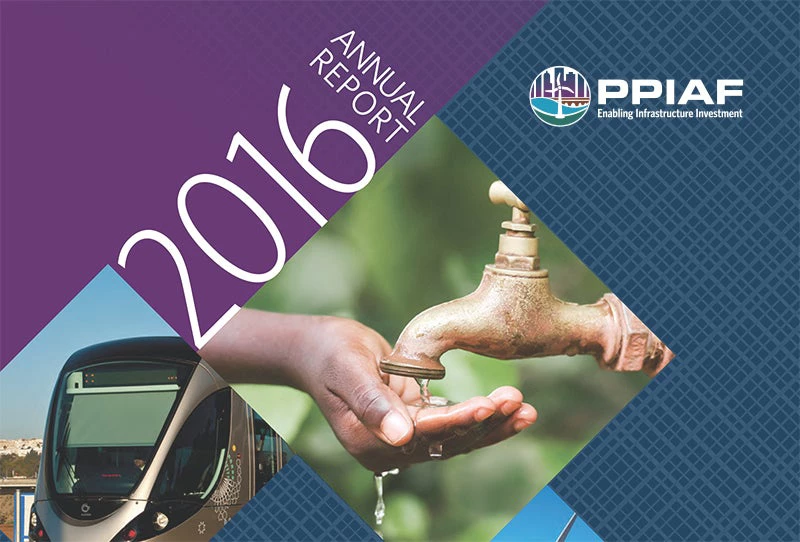At the Public-Private Infrastructure Advisory Facility (PPIAF) we are always trying to improve how we help countries—especially those with the greatest needs—develop strategies to attract private sector investment in much-needed infrastructure such as transport, water/sanitation, and energy. And we aren’t afraid to assess our past work to find ways to do it.
Under the lead of our Technical Advisory Panel—independent experts commissioned by our donors—we are devoting more time and resources to evaluate, with the various beneficiaries and stakeholders, the impact of our past activities and identify what’s worked well and inform our future activities.
Last year, PPIAF released impact assessments of our past activities in Vietnam and Nigeria, and three more are currently being conducted in Malawi, Senegal and Indonesia.
Nigeria’s PPP Successes and Failures
With a booming population of roughly 182 million and a GDP of $481 billion in 2015, Nigeria is Africa’s most populous country and largest economy, yet still faces huge infrastructure challenges. “ Even if we devoted our entire budget for the next three years to infrastructure it wouldn’t be enough,” said Nigeria’s Minister of Finance, the Honorable Kemi Adeosun, at a panel discussion at the IMF-World Bank Group’s 2016 annual meetings in Washington, D.C, in October 2016.Since 1999, PPIAF has consistently supported the Nigerian authorities in facilitating private sector infrastructure investments in the port, water, and energy sectors by providing $4.3 million in funding. The recently completed impact assessment reviewed past technical assistance in those sectors. It also identified legal, institutional, and policy reform outcomes to encourage private participation in infrastructure, and assessed impacts of Public-Private Partnerships (PPPs).
We found the port sector showed measurable satisfactory results in terms of efficiency and income gains. The water and energy sectors, however, fell short at the regulatory level—this outcome being linked to issues of stakeholder engagement and coordination between public and private stakeholders.
Improving Private Sector Participation in Vietnam
From 2003 to 2014, PPIAF provided technical assistance to Vietnam through a diverse range of activities , including initiatives supporting the legal and regulatory environment for PPPs and sector-specific assistance for transport PPPs with overall interventions totaling $2.34 million.The impact assessment reviewed past technical assistance to Vietnam to establish how our technical work has led to a more effective enabling framework—legal, regulatory, institutional, and policy reform—for PPPs and how this contributed to increase private sector participation in infrastructure, particularly in the transport sector.
It showed the PPP framework embedded in two decrees issued by the government in 2015 is well designed to implement PPP projects and should be very effective in attracting wide market interest in Vietnam from international players.
On the transport front, the assessment showed PPIAF-funded technical assistance has been particularly effective in increasing the use of performance-based contracting for road maintenance as well as outsourcing urban bus services. PPIAF assisted Vietnam’s largest cities, Hanoi and Ho Chi Minh City, in taking steps to involve the private sector in improving urban public transport, including bus and light rail transit systems.
A look at our past year
These assessments follow a year marked by a quantitative leap in activity: total new grants approved in FY16 surpassed $27 million—a 60% increase over the previous year ($16.9 million)— even though our corresponding disbursements somehow lagged behind. Alongside this ramp-up of grant funding to record levels, we were able to generate significant co-financing of our activities from our partners (50% on average) and deliver on key targets, priorities and performance areas as agreed with our donors.
Key highlights from FY2016 include:
- Increased relevance of PPIAF through programs: PPIAF supported seven technical assistance programs developed in past years and designed and approved six new programs—characterized by close collaboration with development partners, leveraging their expertise and co-financing.
- Maintained focus on countries with the greatest need for our services: Out of an active portfolio of $45 million of on-going activities, covering more than 50 countries, half of PPIAF’s new grants are in Sub-Saharan Africa, 60% are in lowest-income countries, and one out of six are in fragile and conflict-affected countries.
- Increased oversight of activities through newly endorsed results framework: PPIAF approved a new results framework last May, which better reflects the hierarchy of results according to PPIAF’s theory of change and business model, and incorporates the many M&E tools and improvements that we have instituted in recent years.
- Focus on delivering knowledge to practitioners who need it: In FY16, PPIAF reinforced its structured approach to designing and producing knowledge products through two successful calls for proposals as part of its aspiration to become a center of excellence in private participation in infrastructure.
To learn more about our technical assistance, a snapshot of assistance by region and sector, examples of successful activities and partnerships, and status updates of activities funded through PPIAF’s various trust funds please read the PPIAF’s 2016 Annual Report.
Related Posts
From Africa to Asia: Facilitating private investment in infrastructureBuilding sustainable infrastructure one click at a time
We look forward to hear from you: Flagging a new World Bank Group consultation on the Guidelines for the Development of a Policy for Managing Unsolicited Proposals in Infrastructure Projects. Submit your feedback here - Now open through May 7, 2017.



Join the Conversation